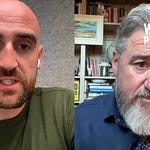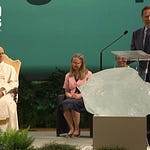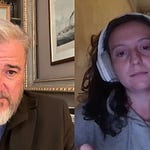This week on Wicked Problems: Climate Tech Conversations, we dive into an extraordinary moment in climate justice, led by voices from the Pacific. The International Court of Justice (ICJ) has taken on a landmark climate case, spearheaded by the small island nation of Vanuatu, in collaboration with youth leaders and seasoned climate advocates. It’s a story of legal innovation and breaking points.
We were honored to speak with Professor Elisabeth Holland, a pioneer in climate negotiations and a guiding force behind the Pacific region’s climate leadership. Joining us was Loes van Dijk, founder of Climate Court (you should subscribe) and a returning voice on our show. Together, we explored the origins, stakes, and possible outcomes of this unprecedented ICJ case.
From Classroom to Courtroom
When law students at the University of the South Pacific were challenged to imagine actionable solutions to the climate crisis, they didn’t merely brainstorm; they created a movement. As Professor Holland recounted, these students drafted the first legal frameworks that would ultimately lead to Vanuatu’s case at the ICJ. Their mission? To hold major emitters accountable for the devastation wrought by climate change.
Professor Holland shared the remarkable origins of this effort, including the critical role of educators and leaders like Tony de Brum, whose work championed climate justice not just for the Pacific, but for the planet. This isn’t merely a legal case—it’s a bold redefinition of what global climate accountability can look like.
A Stark Contrast: ICJ Proceedings vs. COP Diplomacy
The ICJ case has brought to light a legal and ethical battleground that feels starkly different from the staged diplomacy of annual COP summits. Professor Holland and Loes reflected on the plain-spoken clarity of the arguments presented in The Hague—far removed from the performative consensus-building often seen in international climate negotiations.
Countries like Vanuatu and the Marshall Islands framed their submissions with a compelling mix of legal precision and moral urgency. Cynthia Hone, representing Pacific youth, delivered a statement that cut to the heart of the issue: major emitters have hijacked international agreements like the Paris Accord, turning them into "polluter safe harbors."
In sharp contrast, the United States and other high emitters leaned on legalistic defenses, claiming the Paris Agreement imposes no binding legal standards. As Loes put it, such arguments attempt to strip equity and future generations' rights from the climate debate, reducing the discourse to the bare letter of the law.
Attribution Science: A New Frontier in Climate Justice
A pivotal element of this case is attribution science—the ability to trace climate impacts to specific emitters. While still an evolving field, this science has grown increasingly robust, enabling plaintiffs to demonstrate the direct role of emissions from particular states and corporations in fueling climate disasters.
Professor Holland emphasized the transformative potential of attribution science, which entered the climate lexicon during the second assessment cycle of the Intergovernmental Panel on Climate Change (IPCC). Today, it offers a powerful tool for courts to establish accountability, despite fierce resistance from fossil fuel interests.
The Pacific’s Collective Voice
One of the most striking aspects of the Pacific submissions is their deeply collective ethos. As Professor Holland noted, Pacific cultures are rooted in interconnectedness—whether it’s the navigation of vast ocean expanses or the shared stewardship of fragile ecosystems. This perspective shapes their legal arguments, which often go beyond individual nations' interests to emphasize global responsibility.
“The Pacific has always been here to save the world,” Professor Holland said, echoing the late Tony de Brum’s declaration after the Copenhagen climate summit.
Geopolitics and Climate Justice
Beyond the courtroom, the ICJ case has profound geopolitical implications. Professor Holland outlined how Pacific nations have historically leveraged climate justice as a unifying cause, even amidst broader global tensions. However, this unity may be tested as the U.S. and China vie for influence in the region.
The U.S., under the Biden administration, has reengaged with Pacific nations, opening new embassies and pledging climate finance. Yet, the prospect of a Trump resurgence casts uncertainty over America’s commitments. Meanwhile, China’s Belt and Road Initiative offers much-needed infrastructure but often at the cost of debt dependency.
What Victory Looks Like
As our conversation wound down, we asked Professor Holland what success might look like for the Pacific nations leading this case. Her answer was both inspiring and sobering: true victory lies in catalyzing a global transition to a 1.5°C world—a goal that demands urgent collective action across every sector of society.
The ICJ case, she reminded us, is just one tool among many. Whether it’s through science, policy, or grassroots activism, the fight for climate justice must be fought on all fronts.
More
For a lengthier account of what Vanuatu and other Small Island States represented by the Melanesian Spearhead Group [aka ‘the case for the prosecution’] check out our previous episode:
We’ll be coming out shortly with The Case for the Defence, with clips from all the countries arguing against those points.
Merry COPmas
If you’re already a material supporter of our work, thanks. But if you haven’t, we really think that the way the world is heading needs more, not less, independent voices and forums trying to describe things as they are and discussing what to do about them. Without doomerism, or happy-clappy BS, and without fear or favour. And a sub is a great holiday gift. Come to wickedproblems.earth and maybe help keep this going.
















